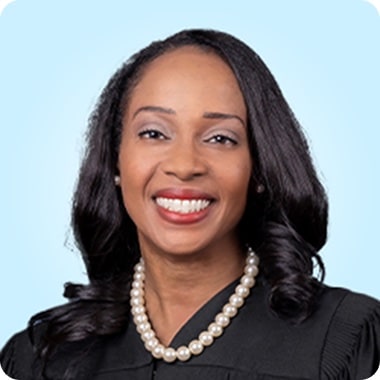This engaging ethics CLE seminar explores key responsibilities under the ABA Rules of Professional Conduct, with a focus on client communication, fee agreements, and the proper management of trust accounts. The program will also address the ethical considerations and best practices for integrating artificial intelligence into legal practice, including a focus on how courts are responding to lawyers using artificial intelligence. Participants will gain practical guidance on navigating the evolving challenges of legal practice while maintaining ethical integrity. Ideal for attorneys in all practice areas, this program provides valuable insights and actionable takeaways to help lawyers meet their ethical obligations and strengthen their practice.
- Introduction
- Information about the speaker and the agenda
- Client Communication – Rule 1.4
- Understanding your obligations under the Rules of Professional Conduct, maintaining transparency, managing client expectations to foster trust and minimize misunderstandings, and a discussion on best practices
- Fee Agreements – Rule 1.5
- A detailed look at the Model Rule on fee agreements to ensure compliance, best practices for drafting clear, ethical fee agreements, and an overview of the various types of fee agreements used between attorneys and clients
- Trust Accounts
- Guidance on properly handling client funds, maintaining compliance with trust accounting requirements, and avoiding mismanagement, misappropriation, or commingling
- Artificial Intelligence
- Exploring how AI tools can be used effectively and responsibly in legal practice while maintaining client confidentiality, competence, and diligence
- The discussion will also include information on how courts are reacting to lawyers’ use of artificial intelligence in legal pleadings before the court
- Questions & Answers (as time permits)
This webinar is divided into section summaries, which you can scan for key points and then dive into the sections that interest you the most.
Please note this AI-generated summary provides a general overview of the webinar but may not capture all details, nuances, or the exact words of the speaker. For complete accuracy, please refer to the original webinar recording.

Judge Dorsainvil was appointed as Judge to the District Court for Prince George’s County, MD on February 17, 2020. Judge Dorsainvil presides over trials and issues decisions in numerous cases including civil lawsuits, criminal misdemeanors and certain felonies, domestic violence matters, tax, motor vehicle violations, landlord-tenant disputes, replevin and detinue claims, emergency evaluation petitions, extreme risk protective order petitions, bail review and preliminary (probable cause) hearings for any crime charged in Maryland. She also reviews search warrants and issues decisions regarding expungements, shielding, garnishments, statutory exemptions, and motions filed before and after civil and criminal trials in Prince George’s County, Maryland. Read More ›
*CLE credit is only available to Justia Connect Pros. Not a Pro? Upgrade today>>
Status: Approved
Credits: 1.00 Legal Ethics
Earn Credit Until: June 30, 2026
Status: Approved
Credits: 1.20 Ethics/Professionalism
Earn Credit Until: September 9, 2026
Status: Approved
Credits: 1.00 Ethics
Earn Credit Until: February 28, 2026
Status: Approved
Credits: 1.00 Legal Ethics/Professional Responsibility
Difficulty: All Levels
Earn Credit Until: December 31, 2025
Status: Approved
Credits: 1.00 Legal Ethics/Professional Responsibility
Earn Credit Until: August 31, 2026
This presentation is approved for one hour of Legal Ethics CLE credit in California, one hour of Ethics CLE credit in North Carolina, and one hour of Legal Ethics/Professional Responsibility CLE credit in South Carolina (all levels). This program has been approved by the Board on Continuing Legal Education of the Supreme Court of New Jersey for 1.20 hours of total CLE credit. Of these, 1.20 qualify as total hours of credit for Ethics/Professionalism. This course has been approved for Minimum Continuing Legal Education credit by the State Bar of Texas Committee on MCLE in the amount of 1.00 credit hours, of which 1.00 credit hours will apply to Legal Ethics/Professional Responsibility credit.
Justia only reports attendance in jurisdictions in which a particular Justia CLE Webinar is officially accredited. Lawyers may need to self-submit their certificates for CLE credit in jurisdictions not listed above.
Note that CLE credit, including partial credit, cannot be earned outside of the relevant accreditation period. To earn credit for a course, a lawyer must watch the entire course within the relevant accreditation period. Lawyers who have viewed a presentation multiple times may not be able to claim credit in their jurisdiction more than once. Justia reserves the right, at its discretion, to grant an attendee partial or no credit, in accordance with viewing duration and other methods of verifying course completion.
At this time, Justia only offers CLE courses officially accredited in certain states. Lawyers may generate a generic attendance certificate to self-submit credit in their own jurisdiction, but Justia does not guarantee that lawyers will receive their desired CLE credit through the self-submission or reciprocity process.



